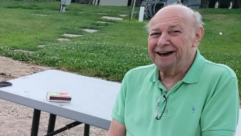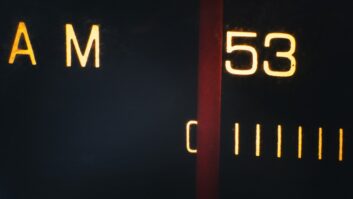
If you’re confused about the current 60-day settlement window for FM translator applications — take note.
Earlier this summer, the Federal Communications Commission opened a window to accept new FM translator applications for the carriage of either Class C or D AM stations. This window — which was open between July 26 and August 2, 2017 — was for those Class C and D AM stations that did not receive a translator in last year’s 250-mile waiver windows and were looking to file for a new FM translator to rebroadcast their AM station.
Now the industry is in the midst of a 60-day settlement window. What does this mean? What should broadcasters know about this process? Radio World spoke with communications attorney John Garziglia with Womble Bond Dickinson about the current settlement window and what to look out for.
Radio World: Why does the FCC set a settlement window for FM translator applicants?
John Garziglia: Between July 26 and August 2, the FCC accepted new FM translator applications for the carriage of either Class C or D AM stations. Of the 1,000+ applications filed, several hundred were conflicting resulting in 88 groups of mutually-exclusive applications. Each mutually-exclusive group contains from two to four applications.
In order to resolve these application conflicts, the FCC opened a settlement period. During this settlement period, which goes through Nov. 29, these mutually-exclusive applicants can either make technical changes, or agree among themselves regarding dismissals, so as to remove one or more applications in the group from being conflicting.
Radio World: Are there any key details broadcasters should know about the current settlement window to remove themselves from a mutually-exclusive group filing?
Garziglia: Applicants cannot get rich off of agreeing to dismiss an application in order to allow another application to be granted. The FCC’s rules limit dismissal payments to a reimbursement of expenses only. In most instances, applicants should be able to find a technical solution that will remove the conflict among the applications in the group without the need for dismissals.
If, however, any applications in the group remain mutually-exclusive at the end of the settlement period, those applications will be set for an FCC auction.
Radio World: In your experience, are there any potholes that broadcasters should look out for if they are participating in this window?
Garziglia: If a technical amendment results in an application no longer being mutually-exclusive, there is no guarantee of a construction permit being granted. Rather, a long-form FCC Form 349 application must still be filed which will be subject to petitions to deny and other public comment, as well as to Section 74.1204(f) interference-based pregrant objections.
Also, for an AM broadcaster that agrees in a settlement to dismiss its application, even though there will be another new FM translator filing window for all AM stations, there will be no further opportunity for that broadcaster to file again as it will have used its one opportunity under the FCC’s AM-exclusive FM translator procedures.
Radio World: Is there anything else broadcasters should be aware of?
Garziglia: AM broadcasters who have not previously taken advantage of either the 250-mile FM translator move window or the new FM translator window this past July will have one final opportunity to file for a new FM translator in a yet-to-be announced filing window.
Even if an AM station is already carried on an FM translator, the FCC’s recent expansion of the area in which an FM translator may be located to anywhere within a 25-mile radius or within the 2 mV/m contour of an AM station may allow for the advantageous use of another FM translator provided that the multiple FM translators do not cover substantially the same area.
Radio World: Where can broadcasters turn if they have questions?
Garziglia: Any broadcaster seeking an FM translator is highly advised to seek qualified engineering and legal assistance. FM translators can be a tenuous proposition. The FCC’s current stance remains that just a handful of distant-station interference complainants can remove an FM translator from the air. An AM station could spend tens of thousands of dollars and major promotional efforts only to suffer an FCC-ordered loss of its FM translator. Therefore, competent upfront advice on the risks and pitfalls of FM translators is highly advised.








